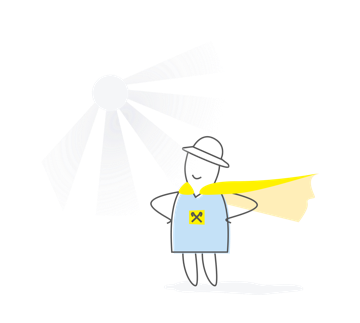AMCU as a tool for protecting trade secrets
Are competitors taking over trade secrets? File a complaint with them to the AMCU and you can get a refund of up to 5% of the company's annual turnover. How to do it right?
Former employees, leaving, grabbed a customer base and information about the conditions of cooperation with them and began to lure them with more advantageous offers. Competitors have access to your company's staffing and are actively headhunting the best employees. The recipe for your products has hit the market and store shelves are flooding with cheaper counterparts. All these are consequences of the leak of commercial information.
One of the key tasks of the Antimonopoly Committee of Ukraine is the protection of economic competition. The committee may punish the violator who illegally seized confidential information. But provided that this has caused unfair competition. The relevant standards have long been spelled out in the Law of Ukraine “On Protection from Unfair Competition”, but in practice they were hardly used, since it is not easy to prove the violation.
Successful case
But in December 2018 the ice broke: the Antimonopoly Committee of Ukraine for the first time fined a company that used competitor's confidential information in order to obtain commercial benefits. The fine amounted to 360 thousand UAH. And this is 3.4% of the annual turnover of the affected company.
That's how it was: two former employees of the company decided to open their own business. Before dismissal, they took with them the entire database of customers, contractors, suppliers - taking into account prices, trade allowances, discounts, etc. Subsequently, they used it to open their own business and lure customers of the former employer. The latter wrote a statement to the Antimonopoly Committee of Ukraine.
The committee decided this case for more than three years and, as a result, fined “inventive” businessmen for a tidy sum.
We are preparing an appeal
The Law “On Protection from Unfair Competition” spells out four types of offenses:
- unlawful collection of trade secrets (Article 16);
- disclosure of trade secrets (Article 17);
- inducement to disclose trade secrets (Article 18);
- unlawful use of trade secrets (Article 19).
So, if your situation falls under one of these points, you can safely write a statement to the Antimonopoly Committee of Ukraine with a request to punish attackers. But remember that the main burden of proving a violation of your rights will fall on your own shoulders. It is unlikely that the Antimonopoly Committee of Ukraine will carry out investigative actions, searches or examination upon your application. Although the Committee formally has the right to do so, but usually such measures are used by the department for more complex violations. Therefore, we recommend simultaneously contacting law enforcement agencies.
The AMCU does not have a standard application form. Despite the fact that a sample is offered on the website of the Antimonopoly Committee, in practice the application is written in any form. It must specify the following data.
- The name of the body to which the application is submitted: it can be submitted both directly to the Committee and to the appropriate territorial office of the Committee at the location of the company.
- Name (for legal entities) or first name, last name and middle name (for individuals) of the parties (applicant and defendant), their location (for legal entities) or place of residence (for individuals). You must also indicate other details of the parties, in particular the postal address, telephone or fax number, if any, email address.
- Name of contact person (for legal entities), phone number and email address, if any.
- The content of the requirements, in particular the decisions expected by the applicant from the Committee bodies.
- A statement of the circumstances by which the applicant substantiates his claims and an argumentation of how his rights are violated, defined by law as a violation of the law on economic competition.
- Information about the appeal to any other public authority, in particular to the court, on issues raised in the application.
- The list of documents and materials that are attached to the application. If restricted information is served, it must go in a separate sealed envelope with the appropriate mark. On each page of these documents should indicate the type of information - commercial or banking secrets. You should also justify why you think that access to this information should be limited.
By law, an application should be submitted to the Antimonopoly Committee of Ukraine no later than 6 months from the moment when information about the leak of confidential data was found out or could be found out. Otherwise, the Antimonopoly Committee may not accept it.
The applicant can only be a business entity whose rights have been violated. True, anyone can submit a letter or application to the AMCU. But it is not a fact that he will receive the status of an applicant, even if the Committee considers the application and decides to open a case. And without this status, it will be impossible to get acquainted with the case file.
The Antimonopoly Committee has 30 days to consider the application. However, in some cases, this period may be extended to 60 days.
Appeal to the Antimonopoly Committee of Ukraine is an effective defense in case of violation of the rights to maintain trade secrets. Given that there is already a first precedent for successfully resolving such a case, it is worth using this tool if your confidential information has fallen into the hands of competitors.

Alexey Kot, Doctor of Law, Managing Partner, Antika Law Firm















